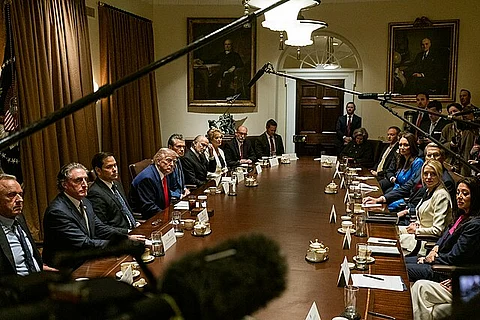

The United States and China announced a landmark agreement on Monday to significantly reduce tariffs on each other’s goods, marking a pivotal step toward de-escalating a trade war that has strained global markets and disrupted supply chains.
The deal, finalized after intensive weekend negotiations in Geneva, Switzerland, introduces a 90-day pause on punitive measures, offering relief to businesses and investors worldwide.
Under the terms of the agreement, the US will temporarily lower its tariffs on Chinese goods from 145% to 10%, while China will cut its levies on American imports from 125% to 10%, according to the joint statement.
This rollback follows a period of heightened tensions, with nearly $600 billion in bilateral trade stalled due to reciprocal tariffs and export restrictions, including China’s curbs on rare earth elements critical for US manufacturing.
The Geneva talks, the first high-level economic discussions since President Donald Trump’s return to office, involved US Treasury Secretary Scott Bessent and US Trade Representative Jamieson Greer alongside Chinese Vice Premier He Lifeng.
Both sides described the negotiations as productive, with Bessent stating
Both countries represented their national interest very well... We both have an interest in balanced trade, the U.S. will continue moving towards that
US Treasury Secretary Scott Bessent.
The joint statement emphasized a commitment to “a sustainable, long-term, and mutually beneficial economic and trade relationship.”
To sustain momentum, both nations agreed to establish a mechanism for ongoing discussions, with meetings to alternate between China, the US, or a third country as needed.
The announcement sparked optimism in financial markets, with Wall Street futures climbing sharply.
Dow futures rose over 2%, S&P 500 futures gained nearly 3%, and Nasdaq Composite futures surged more than 3.5%.
In Asia, Hong Kong’s Hang Seng index jumped over 3%, reflecting hopes that the agreement could avert a global recession and stabilize supply chains disrupted by the trade dispute.